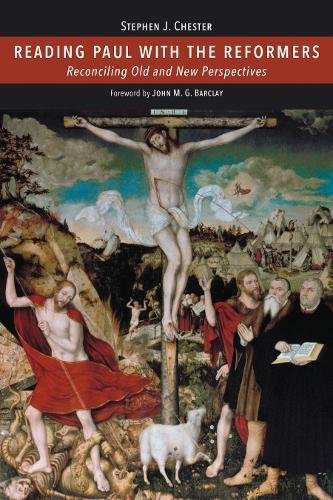Ben. It would appear that you see the NPP’s positive contribution to our Pauline discourse chiefly to be in emphasizing that an anti-Semitic reading of Paul will not do. At the same time, you are right to point out not only that Judaism was not a religion that lacked a theology of grace, nor was it fundamentally legalistic in character. But you also think the NPP is wrong if and when it says ‘works of the law’ refer to the boundary rituals (only). In fact, it refers to any and all works of the law as the Reformers said. What I see no evidence of is a recognition on the part of the NPP that what Paul is really arguing is not grace vs. law, or Gospel vs. law, but rather that the Mosaic covenant itself was pro tempore, and that the new covenant is not simply a renewal of that old covenant. This seems to be a hangover from the ‘there is but one covenant in many administrations’ assumption, which is not Paul’s view, nor the view of the author of Hebrews at all. Would you agree? How should we view these antinomies?
Stephen. There is no doubt that there is a very significant argument about time in Paul. There was the time of the law and there now is, after Christ has come, the time of grace. I do not think any serious interpreter of Paul can be in any doubt about this. However, it is not all that there is. It is not that for Paul the law used to give life but that now that life is mediated through Christ and the gospel, and now to Gentiles as well as Jews. It is rather that “the works of the law” have never led to life and justification has always been by faith and hence the crucial significance for Paul and the faith of Abraham (Galatians 3, Romans 4). Paul does not argue that the Gentiles need not be circumcised because the time of circumcision is over but instead that circumcision was a seal of the righteousness of faith that Abraham had before he was circumcised so that now he can be the father of all that believe, both circumcised Jews and uncircumcised Gentiles (Romans 4:11-12). There is also in Paul the kind of contrast that you refer to as “grace vs. law” or “gospel vs. law.”
That observation, though, reminds me to say also that there is more to the NPP than emphasizing simply that an anti-Semitic reading of Paul will not do, as so very important as that is. When I read Tom Wright, for example, much as I think he completely misunderstand Romans 4:1-5, I find him to be completely on target when he emphasizes that later in Romans 4 Paul’s message is not only about how believers are justified (by faith or by works) but also about Abraham’s fatherhood of a worldwide family composed of both Jews and Gentiles, which is the blessing promised to Abraham by God. The recovery of this corporate, communal emphasis in Paul’s argument is salutary and provides a significant positive basis for thinking about Christian identity in relation to our Abrahamic descent.













